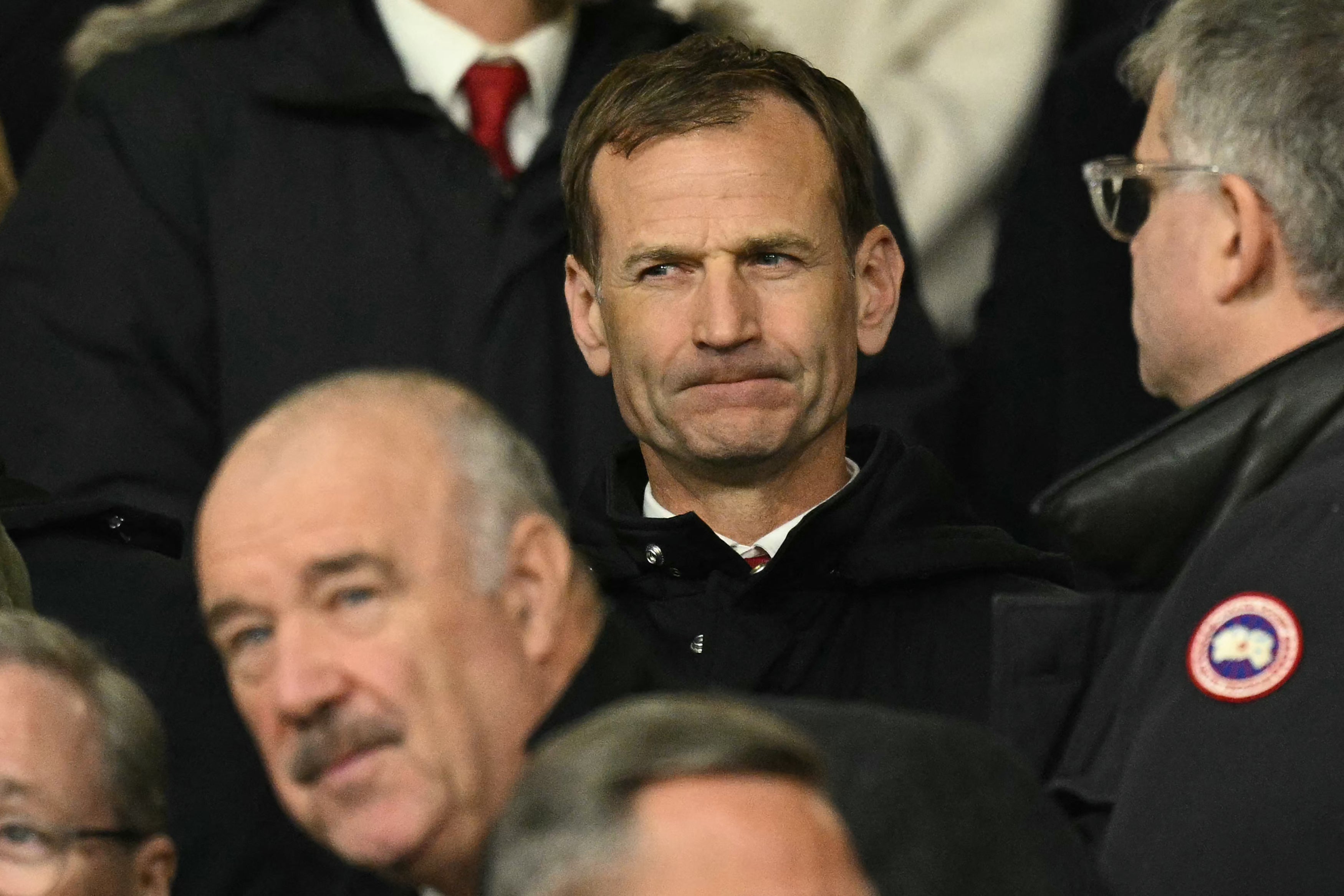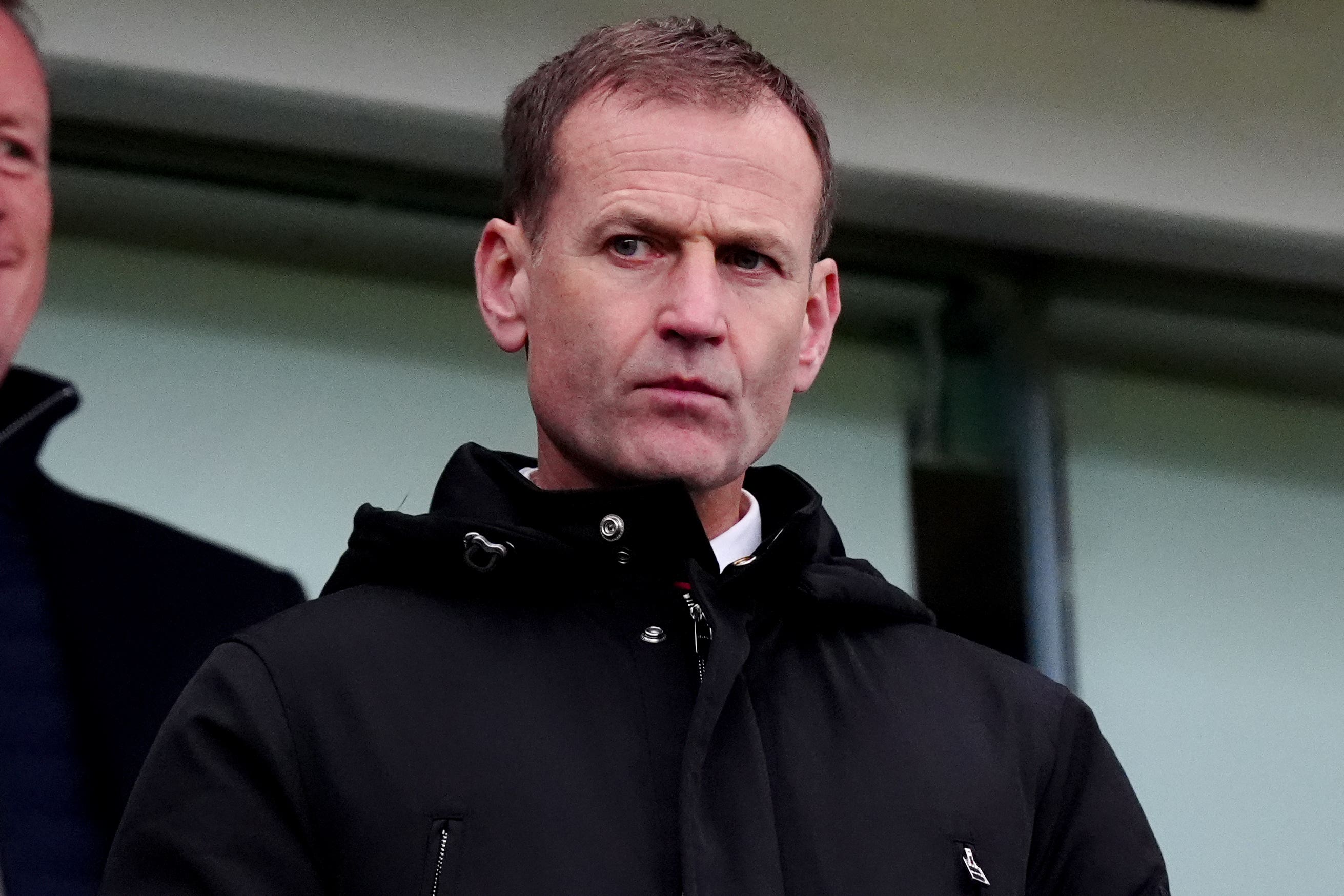Inside Dan Ashworth’s farcical Man Utd exit and the power struggle in the Old Trafford soap opera
The departure of recently recruited sporting director Dan Ashworth was a debacle, explains Miguel Delaney, but sources close to owner Sir Jim Ratcliffe claim there is a method in the madness
Dan Ashworth has left Manchester United because Sir Jim Ratcliffe wanted to act on something he felt wasn’t working rather than wait in the hope that it would work. The stance of the club’s principal decision-maker is that there is no time to waste. It has led to shock at Carrington.
The big question at Old Trafford is whether that same seriousness will now extend to United’s leadership structure, given that things look increasingly farcical.
Personality clashes have contributed to Ashworth’s departure. He wasn’t really fitting into the structure either, although that was partly due to a case of “too many cooks”. Alongside these reasons was also doubt about some of Ashworth’s judgement.
Word quickly spread after Sunday’s announcement – in the way that often happens in football – that the 53-year-old was not one of the voices who pushed for Ruben Amorim.
Ashworth’s admiration for Gareth Southgate and Graham Potter is well known, and it has now frequently been pointed out that he did not lead the talks to bring the Portuguese manager in last month. It has since become apparent he was not influential in selecting the manager, despite his position as the sporting director.
Worse, that role had less of a remit than expected, especially under a chief executive as strong and involved as Omar Berrada.

The latter has made a significant impact in his time at Old Trafford so far and impressed Ratcliffe with his assertiveness. That feeling did not extend to Ashworth, with sources insisting that more and more questions were being asked about both his role and recruitment. Ratcliffe has been irritated by some public comments and felt the club was unnecessarily held back by the prevarication over Erik ten Hag, which Ashworth is now seen as a part of.
The minority owner would have moved Ten Hag on much earlier. He also wanted someone with charisma to handle a job of United’s size and felt Ashworth’s suggestions were limited. The increased scope resulted in Amorim, who Ratcliffe wants to give every possibility to succeed.
The Ten Hag era has nevertheless compounded the issues at United, given how the excessive expenditure has left them with an even more ill-fitting squad, in severe need of an overhaul. Of the summer signings, only Noussair Mazraoui has worked out so far.
Senior figures at the club have lamented about how “there is so much to sort”, speaking in even bleaker terms than Ratcliffe did to fanzine United We Stand.
Because of this some have even questioned Ashworth’s wider record. They point to how Brighton continued to improve recruitment, despite the departure of Ashworth and many others.
If such talk seems harsh now that a man has left his job, the more pressing issue is the need for efficiency where it actually matters, rather than in terms of relatively negligible income from harsh ticket price rises.

The images of so many suits in the stands at games – something all the worse when United suffer another setback – has played into the sense of farce. People at other clubs openly wonder who is contributing which part to what decision. The irony is that one of Ashworth’s great strengths is in drawing up technical plans. United’s top structure just doesn’t look like it works, which was visible in the departed sporting director’s own role.
Berrada’s reach impacted it from above. Within the structure, some see interim director of recruitment Christopher Vivell as sufficient, and he could now be made permanent. United sources openly talk about “constantly learning about what the best structure will be to help us to win”.
Some with knowledge of the club also interpret all this as interesting in the context of the wider power dynamic. Although Berrada has grown in influence, the two figures who Ratcliffe listens to the most are Sir David Brailsford and Ineos sport CEO Jean-Claude Blanc. Ashworth is seen as especially close to Brailsford, as part of a high-profile group of sporting figures associated with “high performance” principles. Brailsford was nevertheless said to be much more aligned with Ratcliffe regarding the stance on Ten Hag.
United’s minority owner ultimately felt things weren’t right, and needed change. As figures who know Ratcliffe well say, his opinion can turn quickly and “when his mind’s made up, that’s it”. It essentially represents the assertiveness that wasn’t displayed with Ten Hag.

That has for the moment contributed to the sense of farce which has also had a palpable effect. Regular employees have lost their jobs while ticket prices have gone up, only for major errors at the top of the club to result in a huge waste of time and money with the Ten Hag and Ashworth situations. United spent months of drama trying to get Ashworth out of Newcastle United only for him to spend less time in his actual role at the club.
It's even worse if you stand back further. They appointed a huge new team of executives before standing by Ten Hag and extending his contract, spending £200m on recruitments for his system, then sacking him anyway and appointing a new coach with a different approach before the sporting director left.
The optics, in the words of one source, are not good: “It never got close to anything this bad under Ed Woodward.”
On the other hand, the opinion of those close to Ratcliffe is that it is better to act now rather than let situations worsen; these are just necessary ructions en route to getting it right.
A problem for United has long been that there was no guiding ideology or a clear structure with key figures all sharing the same outlook.
The stories about tensions around Ashworth would indicate this move is at least a step towards that. He won’t be short of offers. Meanwhile, things at United continue to look like a soap opera. Those close to Ratcliffe would say a move as serious as this is about changing the story.
Join our commenting forum
Join thought-provoking conversations, follow other Independent readers and see their replies
Comments
Bookmark popover
Removed from bookmarks